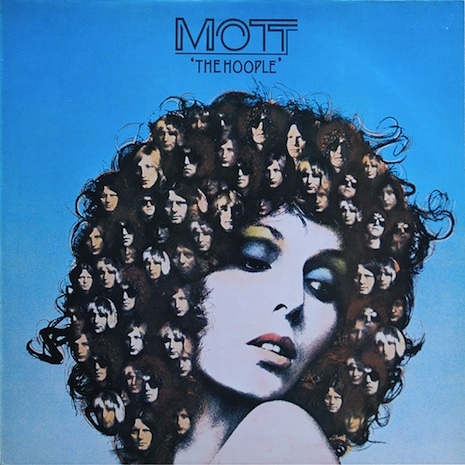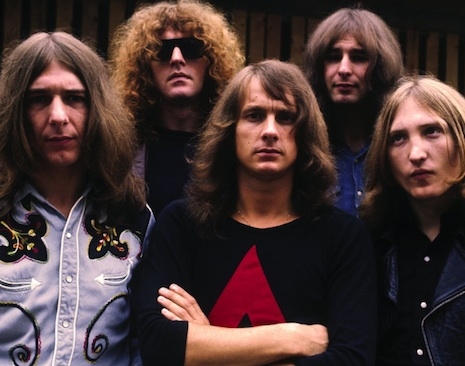
Producer-cum-manager Guy Stevens brought the disparate members of Mott the Hoople together and gave them their iconic name. The name was taken from a pulp novel by Willard Manus which Stevens had read while in prison. It gave the band a certain outlaw image—a bit like Alex and his droogs in A Clockwork Orange. Stevens hoped Mott the Hoople would produce “a new kind of rock ‘n’ roll”—the bastard child of Bob Dylan and The Rolling Stones. The band was finalized when Stevens replaced original lead singer Stan Tippins with songwriter/session musician Ian Hunter.
They may have looked like the heshers from your high school woodwork class (or “hod carriers in drag” as Queen’s Roger Taylor once famously quipped), but their seeming ordinariness belied the fact this was no ordinary band. Indeed, it was soon apparent there was no one to equal Mott the Hoople live or as pioneers in progressing the rock ‘n’ roll art form. Hoople inspired an army of fans, many of whom went on to form their own bands or write/work in the music industry. For example, Mick Jones of The Clash, a band Stevens later produced. But their success onstage was never equaled in record sales. Added to which, they were highly eclectic as a band—guitarist Mick Ralphs was more aligned to blues and rock, while Hunter wrote in response to Steven’s often chaotic and contradictory demands. This meant their first three albums were very, very different to each other. One rock, one dark soul-searching songs and one folk rock—all of which seemed slightly at odds to the exuberance of their stage shows. However a brilliant fourth album Brain Capers (1971) focused the group into a new direction and won them a very important fan—David Bowie—who was to bring them a much needed hit.

After a dispiriting gig at a converted gas station in Switzerland, where the audience just sat and gaped, Mott decided to call it a day. Returning to England, bassist Peter Overend Watts auditioned for Bowie’s band. Bowie hearing his favorite band had split offered Mott a song. His first suggestion was “Suffragette City” which was knocked back. Then “All the Young Dudes.” Ian Hunter later claimed this was the one song that made the hairs rise on the back of his neck. A song that perfectly captured what it was like to be young in the summer of 1972. Everyone knew it was going to be a hit.
World tours, hit singles and three classic albums followed, but Hoople’s success was all too short as keyboard player Verden Allen quit, then guitarist Ralphs left to form Bad Company, and eventually Hunter himself found the pressure waaaaaaaay too much and left.
Mott the Hoople became just “Mott” with Watts and drummer Dale “Buffin” Griffin being the only remaining original members—but they never had the same success. The creative magic Guy Stevens had seen in Mott’s original members was now sadly gone. A shame for they should have kept playing together for a year or two or more. But tastes change, fans grow up, and the ride still goes on somewhere else.
With contributions from virtually all of the key players, The Ballad of Mott the Hoople tells the story of one the seventies best and most loved bands from their formation to their untimely demise.





